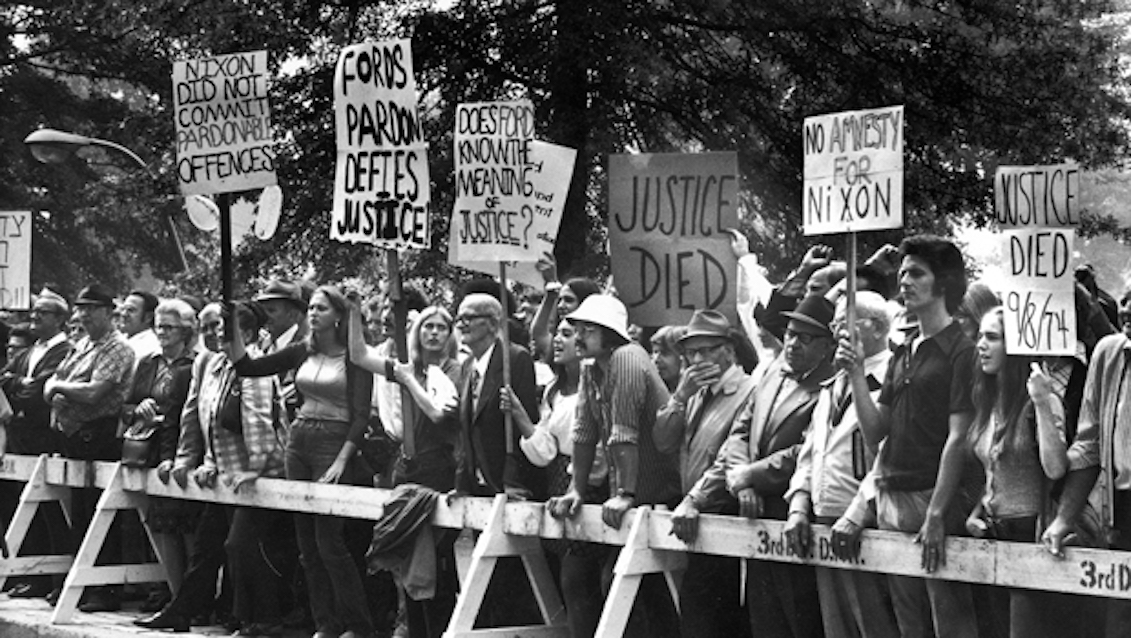
A history of presidential pardons
The pardon granted by President Trump to former sheriff Joe Arpaio reminds us of similar decisions made by his predecessors.
After drafting the Articles of the Confederation that gave rise to the first United States Constitution, in an attempt to take distance from the centralization of power of the English monarchy, in 1787 the Constitutional Convention decided to grant more power to the federal government and, therefore, to the President.
One section of the new Constitution created a power similar to the "real prerogative of mercy," which has since become known as Presidential Pardon.
Article II of Section 2 of the US Constitution describes it as "a power to grant reprieves and pardons for offenses against the United States except in cases of impeachment."
The measure, supported by federalists like Alexander Hamilton, argued that in cases of "insurrections or rebellions," a timely pardon could restore the tranquility of the commonwealth.
Thus, President George Washington pardoned two members of the Whiskey Rebellion, and Abraham Lincoln pardoned all who participated in the Civil War (except high-ranking Confederate officials).
Thomas Jefferson, for his part, was criticized for using the power of forgiveness to save his political allies under the Alien and Sedition Act. He also forgave Dr. Erick Bollman to testify against his rival Aaron Burr in 1807 for treason. As USA Today recalls, Bollman finally refused to accept pardon and never testified.
Franklin Delano Roosevelt pardoned Conrad Mann for leading an illegal lottery, but who was an important political ally of Kansas City boss Thomas Pendergast, who "made a fortune with illegal alcohol, bribes and gambling," and who has deserved credit for getting Harry Truman to the presidency.
Similarly, Truman pardoned one of the most corrupt politicians in Louisiana, "Big George" A. Caldwell, who was known to steal funds from government projects.
Richard Nixon pardoned "infamous Teamster Union leader Jimmy Hoffa in 1971, who would support him during his re-election as president in 1972. The Mafia murdered Hoffa.
RELATED CONTENT
After the Wattergate scandal, President Gerald Ford pardoned Richard Nixon, in what was seen as a gesture of "thank-you" for having resigned before his impeachment.
For his part, George H.W. Bush issued pardons to those involved in the Iran-Contra scandal (a political case during the second term of the Reagan administration, where administration officials covertly facilitated the sale of arms to Iran, which was under arms embargo). Which transformed Bush and Reagan into accomplices of a criminal conspiracy to finance the guerrillas against the Sandinista government in Nicaragua.
Another of the presidents who made controversial use of forgiveness was Bill Clinton, who acquitted his own brother, Roger Clinton and his partner Susan McDougal. He also spared runaway financier Marc Rich, one of the top Democratic contributors who never regretted his tax evasion, fraud and illegal business with Iran.
Finally, President Barack Obama finished his last presidential term by commuting Chelsea Manning, an intelligence analyst convicted in 2010 of having leaked confidential information from the US Armed Forces.
President Trump's pardon to former Sheriff Joe Arpaio thus joins a historical chain of controversial clemency, his first forgiveness being granted to a man recognized for his radically racist stances and his intentional ignorance of the Law.
We might want to ask whether the anti-federalist anticipations will be true, and giving a president the sole power to forgive will be the cause of a tyranny that, as Vice President George Clinton said, could create "a vile and arbitrary aristocracy or monarchy."











LEAVE A COMMENT:
Join the discussion! Leave a comment.